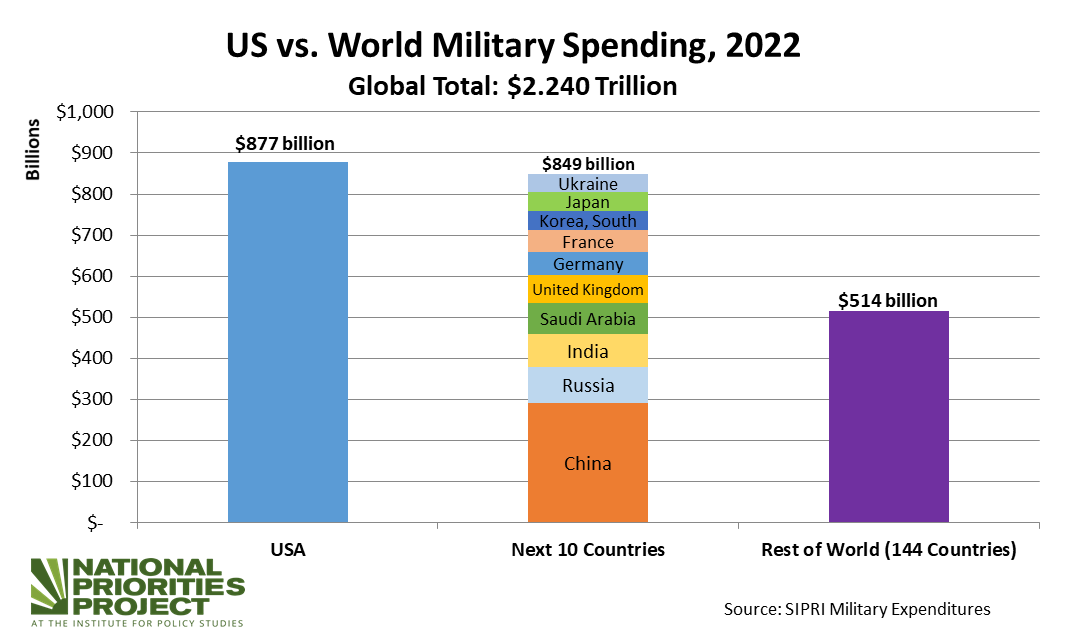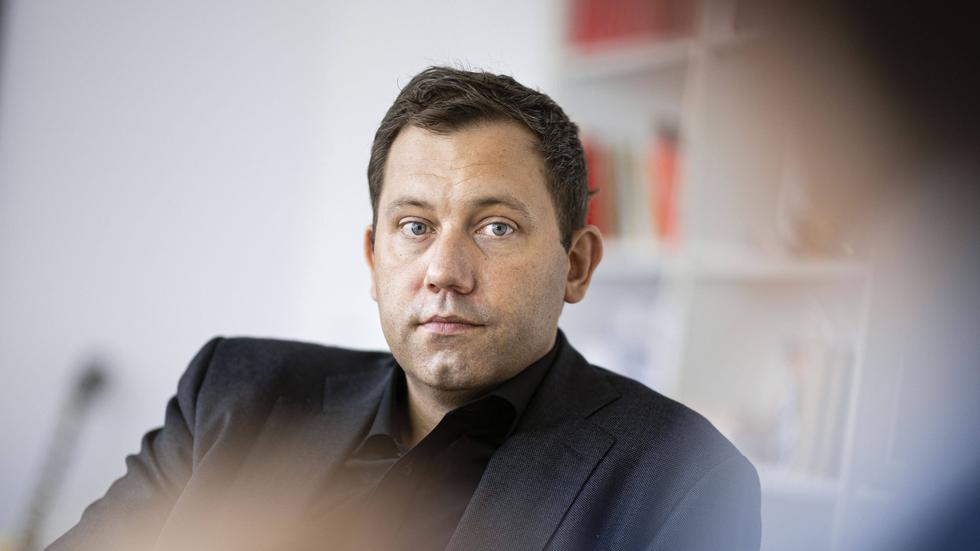The Surge In Global Military Spending: Analyzing Europe's Role In The New Geopolitical Landscape

Table of Contents
Factors Driving the Global Military Spending Surge
Several interconnected factors contribute to the dramatic rise in global military expenditure. Understanding these drivers is crucial to grasping the current geopolitical climate and its implications for international security.
The War in Ukraine and its Geopolitical Ramifications
The Russian invasion of Ukraine served as a stark wake-up call, profoundly impacting defense budgets worldwide. The conflict has directly led to a significant increase in defense procurement, modernization of armed forces, and expansion of military alliances, particularly within Europe. Many European nations have dramatically increased their defense budgets. For example, Germany, traditionally hesitant on significant military spending, has pledged a substantial increase to its defense budget, aiming for a 2% GDP target in line with NATO guidelines. Other nations like Poland and the Baltic states have also seen sharp increases, reflecting their proximity to the conflict and heightened security concerns.
- Increased defense budgets across NATO: Many NATO members are significantly increasing their defense spending to meet the alliance's targets and address perceived vulnerabilities.
- Focus on advanced weaponry and cyber warfare: The war has highlighted the importance of modernizing armed forces with advanced weaponry, including precision-guided munitions, drones, and cyber warfare capabilities.
- Reinforcement of Eastern European borders: Several Eastern European nations are bolstering their border defenses and investing in enhanced surveillance technologies.
The Rise of Great Power Competition
The resurgence of great power competition, particularly between the United States and China, is a significant driver of increased global military spending. This "strategic competition" extends beyond military might, encompassing technological, economic, and diplomatic spheres. The increasing assertiveness of China in the South China Sea and its technological advancements have fueled anxieties among many nations, including those in Europe, leading them to increase their defense budgets to counter perceived threats. The competition for technological dominance, especially in areas like artificial intelligence and hypersonics, further fuels this arms race.
- US-China technological competition: The race for technological superiority is driving significant investment in research and development of advanced weaponry systems.
- Increased Chinese military assertiveness in the Indo-Pacific: China's growing military capabilities and territorial claims are prompting other nations to enhance their defenses.
- European efforts to balance power dynamics: European nations are seeking to navigate the intensifying rivalry between the US and China, leading to increased defense spending to maintain regional stability and security.
The Growing Threat of Terrorism and Asymmetric Warfare
The persistent threat of terrorism and asymmetric warfare remains a significant factor influencing military spending priorities. Non-state actors continue to pose a challenge to global security, necessitating investment in counter-terrorism strategies, intelligence gathering, and cybersecurity. This includes enhancing special forces capabilities, improving information sharing, and investing in technologies to detect and mitigate terrorist threats.
- Investment in counter-terrorism capabilities: Many nations are investing heavily in specialized units and equipment to combat terrorism effectively.
- Focus on intelligence gathering and cybersecurity: Improved intelligence gathering and robust cybersecurity measures are crucial in countering terrorist threats.
- Increased expenditure on special forces: Special forces units are increasingly vital in addressing asymmetric warfare challenges.
Europe's Evolving Role in the New Geopolitical Landscape
Europe's role in the new geopolitical landscape is undergoing a significant transformation. The war in Ukraine has served as a catalyst for increased defense cooperation and a shift in strategic priorities.
Increased European Defense Cooperation
The war in Ukraine has significantly accelerated European defense integration. NATO's presence in Eastern Europe has been strengthened, and there's increased coordination between European Union member states on defense policy. This includes joint military exercises, the development of joint capabilities, and initiatives aimed at pooling resources and enhancing interoperability. The EU is also investing in its own defense capabilities, aiming for greater strategic autonomy.
- Increased EU defense spending: The EU is gradually increasing its collective defense spending, aiming for greater autonomy in security matters.
- Strengthened NATO presence in Eastern Europe: NATO has significantly enhanced its military presence in Eastern Europe to deter further aggression.
- Joint military exercises and initiatives: Increased cooperation between European nations is evident in the frequency and scale of joint military exercises and collaborative projects.
The Shift in Strategic Priorities
European nations are adapting their military strategies and spending to address emerging threats. This includes reassessing defense capabilities, prioritizing certain military technologies, and investing in advanced weaponry systems. Cyber defense and information warfare are gaining increased importance, as is the development of rapid deployment forces capable of responding swiftly to crises.
- Investment in advanced weaponry systems: European nations are investing in next-generation weaponry, including precision-guided munitions and advanced air defense systems.
- Focus on cyber defense and information warfare: The increasing importance of cyberattacks necessitates significant investment in cybersecurity infrastructure and capabilities.
- Development of rapid deployment forces: The ability to rapidly deploy forces to respond to crises is becoming a crucial capability for European nations.
The Economic Implications of Increased Military Spending
The surge in military spending has significant economic implications for European economies. The increased expenditure places a strain on national budgets, potentially leading to increased public debt and trade-offs between defense spending and social programs or other economic priorities. It is crucial to carefully consider the opportunity costs associated with increased military expenditure.
- Impact on national budgets: Increased military spending can lead to budget cuts in other essential sectors, such as education or healthcare.
- Potential for increased public debt: Financing increased defense spending can contribute to a rise in public debt levels.
- Opportunity costs of military spending: The resources allocated to military spending could potentially be used for other areas with greater social or economic benefits.
Conclusion: Understanding the Future of Global Military Spending and Europe's Position
The surge in global military spending is a multifaceted phenomenon driven by the war in Ukraine, great power competition, and the persistent threat of terrorism. Europe's role is evolving rapidly, with increased defense cooperation and a shift in strategic priorities. Understanding the future trajectory of global military spending and its implications for European security and global stability is crucial. The economic consequences of this increase also require careful consideration. We urge you to continue researching this vital topic and explore further resources to delve deeper into the implications of global military spending and its impact on European security and global stability. The future of international security is inextricably linked to understanding these trends.

Featured Posts
-
 Louisville Storm Debris Pickup Submit Your Request Now
May 01, 2025
Louisville Storm Debris Pickup Submit Your Request Now
May 01, 2025 -
 Dagskrain Meistaradeildin Og Nba Stjoernur I Bonusdeildinni
May 01, 2025
Dagskrain Meistaradeildin Og Nba Stjoernur I Bonusdeildinni
May 01, 2025 -
 Northumberland Man Sets Sail Around The World In A Self Built Boat
May 01, 2025
Northumberland Man Sets Sail Around The World In A Self Built Boat
May 01, 2025 -
 Il 22 Settembre Inizia L Appello Nel Processo Becciu Innocenza Proclamate
May 01, 2025
Il 22 Settembre Inizia L Appello Nel Processo Becciu Innocenza Proclamate
May 01, 2025 -
 Astratyjyat Alteawn Ltezyz Slslth Almmyzt Dd Alshbab
May 01, 2025
Astratyjyat Alteawn Ltezyz Slslth Almmyzt Dd Alshbab
May 01, 2025
Latest Posts
-
 Lars Klingbeil Neuer Vorsitzender Der Spd Fraktion
May 01, 2025
Lars Klingbeil Neuer Vorsitzender Der Spd Fraktion
May 01, 2025 -
 How German Youth Protests Impact Spds Coalition Strategy
May 01, 2025
How German Youth Protests Impact Spds Coalition Strategy
May 01, 2025 -
 German Spds Coalition Path Navigating Youth Discontent
May 01, 2025
German Spds Coalition Path Navigating Youth Discontent
May 01, 2025 -
 From Leading Party To Supporting Cast The Spd In Germanys Coalition
May 01, 2025
From Leading Party To Supporting Cast The Spd In Germanys Coalition
May 01, 2025 -
 Youth Unrest Complicates German Spds Coalition Formation
May 01, 2025
Youth Unrest Complicates German Spds Coalition Formation
May 01, 2025
